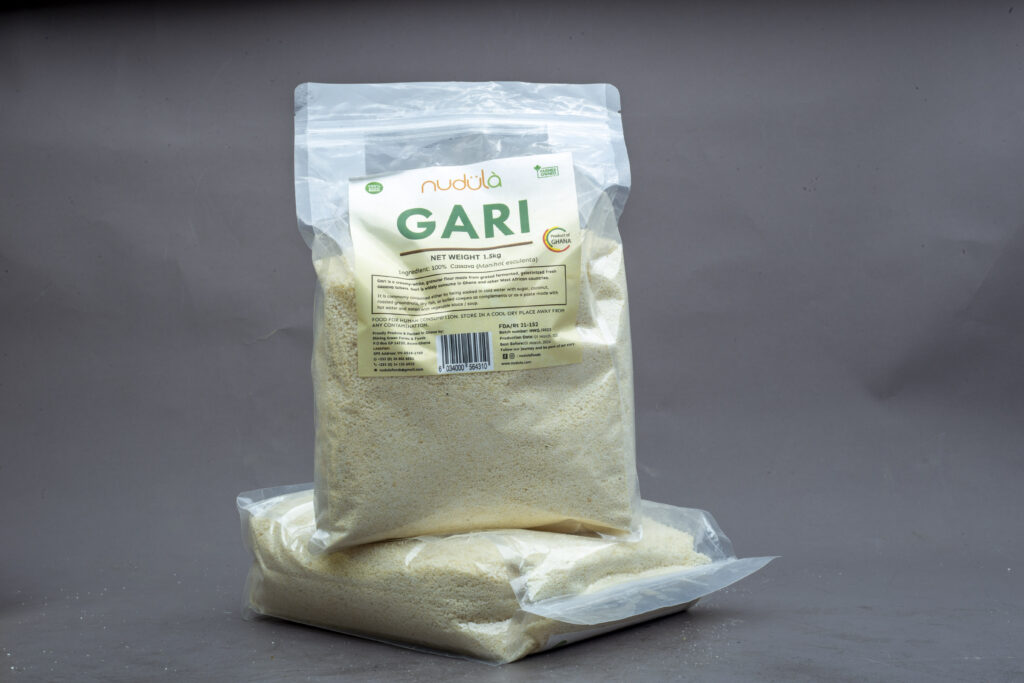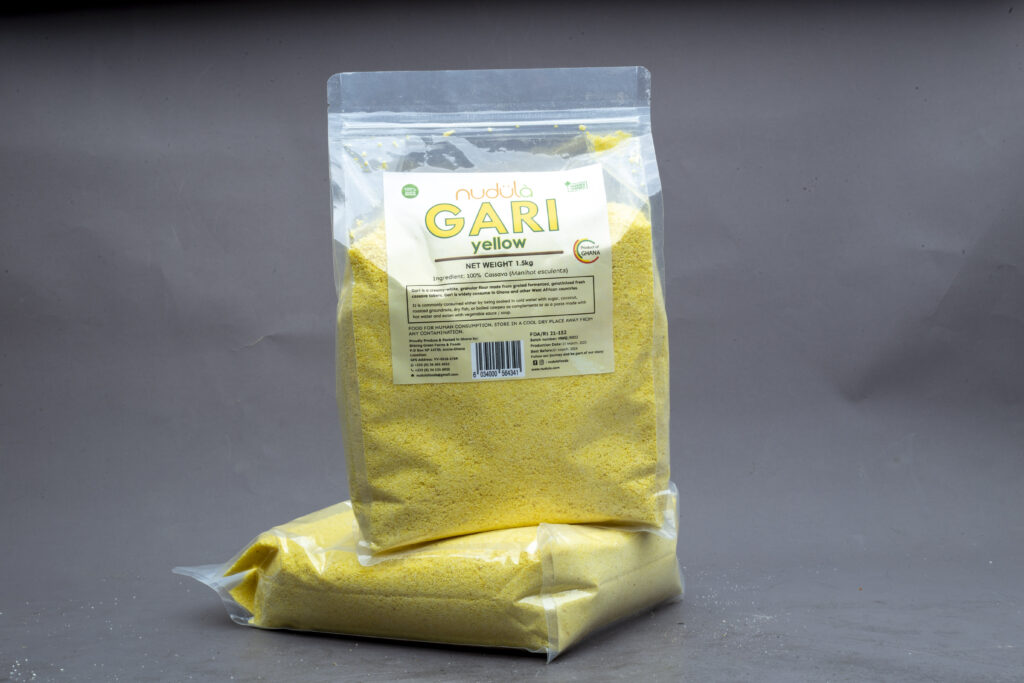
Gari White

Ingredients:
100% Cassava (Manihot esculenta)

Scientific Name:
Manihot esculenta

History:
Cassava (Manihot esculenta), also known as manioc, tapioca, yuca, and mandioca, is a domesticated species of tuber, a root crop originally domesticated perhaps as long ago as 8,000–10,000 years ago, in southern Brazil and eastern Bolivia along the southwestern border of the Amazon basin

Yellow Gari

Ingredients:
100% Cassava (Manihot esculenta)

Scientific Name:
Manihot esculenta

History:
Cassava (Manihot esculenta), also known as manioc, tapioca, yuca, and mandioca, is a domesticated species of tuber, a root crop originally domesticated perhaps as long ago as 8,000–10,000 years ago, in southern Brazil and eastern Bolivia along the southwestern border of the Amazon basin

Kokonte / Cassava Flour
Konkonte, also known by many as abitie, abetee and lapiiwa is a staple food in Ghana. It is popular in west African countries and in the Caribbean. Its known in English as “brown fufu”.
Cassava flour (Konkonte) is made from the whole cassava root that has been peeled, dried, and pulverized into fine powder

Ingredients:
100% Cassava (Manihot esculenta)

Scientific Name:
Manihot esculenta

History:
Cassava (Manihot esculenta), also known as manioc, tapioca, yuca, and mandioca, is a domesticated species of tuber, a root crop originally domesticated perhaps as long ago as 8,000–10,000 years ago, in southern Brazil and eastern Bolivia along the southwestern border of the Amazon basin

Yam
Yams are starchy tuber vegetables are native to Africa, with a brownish bark-like skin that conceals a succulent white to yellow pulp.
Pona Yams offer a unique, subtly sweet taste that’s incredibly versatile. Whether you prefer them boiled, fried, grilled, roasted, or baked, yams add a delightful twist to your meals.
Our yams are a fantastic source of essential nutrients. Packed with potassium, dietary fiber, vitamin C, B-complex vitamins, complex starch, and manganese, they contribute to a healthy, balanced diet.
We take pride in our commitment to purity. Our yams are grown without additives, pesticides, or chemicals, and they are non-GMO. What you get is the unadulterated goodness of nature.

Caring for Your Yams:
To keep your yams at their best, store them in a well-ventilated, dry environment. Please refrain from refrigerating raw yam tubers, as it can affect their quality. Before cooking, always wash yams in cold water, and remember to clean your hands with soap and cold water afterward to prevent skin irritation from cut yams.
